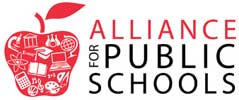After months of delays, Congress has finally taken a significant step toward fulfilling its basic duties: passing the remaining bills to support education and other vital public services. The books are now closed on 2024 funding, and we’ve averted a government shutdown.
Education Funding: Holding Steady
The journey to this moment had many challenges. Months of wasted time were caused by the House Republican majority, which wrestled with far-right pressure to abandon the previous budget agreement from nearly a year ago. However, the majority finally acknowledged that most members in both chambers supported the original agreement.
The education funding bill closely adheres to the agreement reached during last year’s debt ceiling negotiations. Overall funding for education remains essentially level, which is a victory in itself based on the cuts that were proposed.
The Power of Advocacy
Your voices played a crucial role in shaping this outcome. The GOP majority unveiled its plan last summer to slash education funding by 30 percent and gut Title I by 80 percent but advocates like you helped shut down that harmful proposal.
The final bill includes small increases for several critical areas:
- Title I: These grants to local educational agencies receive a boost, with an increase of $20 million above fiscal year 2023.
- IDEA (Individuals with Disabilities Education Act): Funding for special education sees a $14 million increase.
- Historically Black Colleges and Universities (HBCUs): These institutions receive continued support.
In addition, the bill addresses additional measures:
- Higher Education: The final legislation includes a provision which guarantees the continuation of the comprehensive National Postsecondary Student Aid Study (NPSAS). NPSAS is the most comprehensive nationally representative study that measures how students and families finance postsecondary education.
- Workforce Development: The bill includes a directive for the U.S. Department of Labor (DOL) to study “pay-for-success” programs as an outcomes-based incentive for employers to launch (or expand) apprenticeships. The provision in the bill directs DOL to assess the feasibility of such programs, which may inform potential further investment in pay-for-success apprenticeship initiatives at the federal level.
Looking Ahead
Two additional federal initiatives hold promise:
- Supplemental Nutrition Assistance Program (SNAP): By preparing students to learn, SNAP contributes to their overall well-being.
- American Families and Workers Act of 2024: This legislation aims to reduce child poverty by raising the Child Tax Credit and encourages affordable housing construction.
This win was thanks to the voices of advocates like you. Let’s continue working together to build a brighter future for all. Sign up for our updates to stay informed of issues impacting our children, educators, and public schools.








